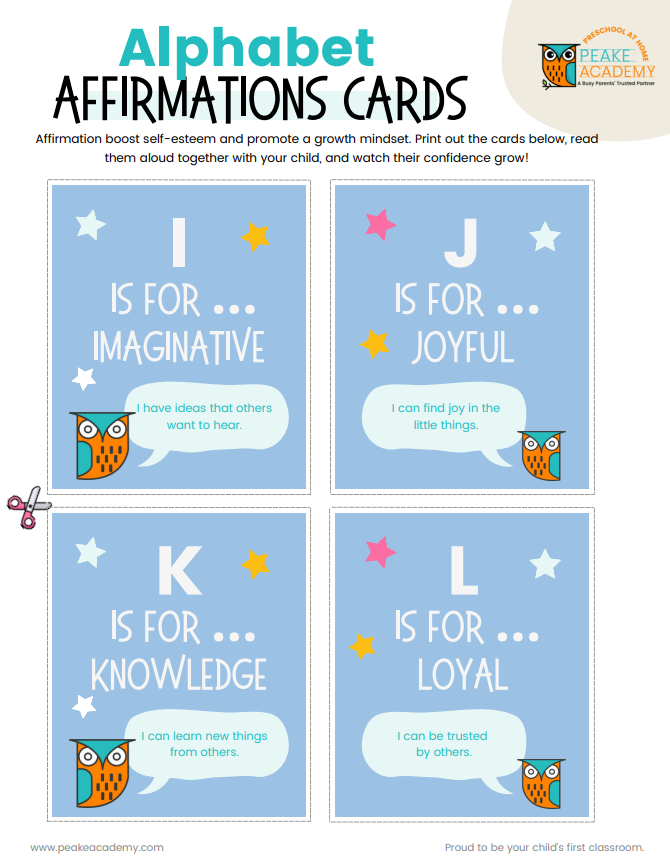Empowering Little Hearts: Teaching Kids About Self-Love and Confidence
In a world brimming with challenges and pressures, it is essential that children develop a strong foundation of self-love and confidence. These qualities are not just nice-to-have; they are crucial tools that empower young minds to navigate life with resilience and positivity. In this article, we will explore practical ways to instill these vital attributes in children.
The Importance of Self-Love and Confidence
Self-love and confidence are closely intertwined and form the bedrock of a child's emotional well-being. Self-love is about appreciating oneself, acknowledging personal worth, and embracing individuality. Confidence, on the other hand, is the belief in one’s abilities and the courage to face new challenges. Together, these qualities enable children to develop healthy relationships, strive for their goals, and handle failures with grace.
Early Foundations
The journey towards self-love and confidence begins in infancy. The way parents and caregivers interact with a child sets the tone for their self-perception. Consistent love, positive reinforcement, and encouragement contribute to a child feeling valued and confident.
Positive Affirmations: Regularly affirming a child’s worth, strengths, and potential can have a profound impact. Simple statements like "You are loved," "You are capable," or "You can do it!" can significantly boost a child's self-esteem.
Encouraging Individuality: Every child is unique, and it's vital to celebrate this individuality. Encourage children to pursue their interests, even if they deviate from conventional norms or family traditions. This reinforces the idea that their preferences and choices are valuable.
Building Blocks in Childhood
As children grow, their experiences with peers, school, and the broader world start shaping their self-perception. This stage requires a more hands-on approach in teaching self-love and confidence.
Role Modeling: Children often mimic adults around them. By demonstrating self-love and confidence in your behavior, you provide a live example for them to emulate. Show them how to handle mistakes with a positive attitude and how to appreciate oneself without arrogance.
Open Communication: Foster an environment where children feel comfortable discussing their feelings. This openness allows them to express insecurities, enabling you to address them directly and reinforce positive self-perceptions.
Promoting Self-Expression: Encourage kids to express themselves, be it through art, writing, sports, or any other medium. Self-expression is a powerful tool for understanding and accepting oneself.
Navigating Adolescence
Adolescence is a critical period where self-esteem can fluctuate significantly. Peer pressure, social media influence, and the quest for identity can challenge a teenager’s sense of self-worth.
Teaching Critical Media Consumption: Equip adolescents with the skills to critically evaluate the media they consume. Discuss how images and messages in the media might not always reflect reality and can set unrealistic standards.
Encouraging Independence: Give teenagers opportunities to make choices and take responsibility. This autonomy builds confidence in their decision-making abilities and reinforces their sense of self.
Celebrating Efforts, Not Just Results: Focus on the effort put into tasks, not just the outcomes. This approach helps teens understand that failure is a part of learning and that their value is not solely tied to success or achievements.
Overcoming Challenges
Despite best efforts, children might struggle with self-love and confidence due to various factors like bullying, academic pressures, or family issues.
Professional Support: In cases where a child struggles significantly, seeking help from a child psychologist or counselor can be beneficial. They can provide tailored strategies and support to address specific issues.
Creating a Supportive Environment: Ensure that the child’s environment, both at home and school, is supportive and nurturing. A safe space where they are heard and respected can significantly aid in building self-confidence.
Instilling self-love and confidence in children is an ongoing process that requires patience, understanding, and continuous effort. It involves not just addressing their achievements but also supporting them through their failures. By nurturing these qualities from an early age, we can empower our little ones to grow into well-rounded, confident, and loving adults. The key is to provide them with the tools to see their inherent worth and to believe in their capabilities, setting them up for a fulfilling and resilient life.
Free Resource
Thank you for reading this content. And if you loved this post, please be sure to join our Parent Advisor Facebook group where we share more insights and community.
Dive deep into the heart of family love and discover ways to strengthen your familial ties this Valentine's Day, plus enjoy playful bonding with our charming Valentine's Day Memory Game freebie.
Everyone deserves self-care
The same goes for busy moms like you. So let's do it together and create a healthy habit!
Join the 30-Day Happy Mom Challenge Today!
Visit our Parent Advisor and The Buzz Blogs to learn more about related topics and parenting tips. You are welcome to join our private Parent Advisor Facebook group. It’s a growing community of parents and preschool teachers where you can learn and share more parenting tips.









